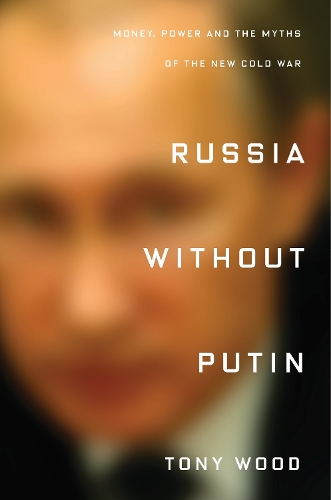
Russia without Putin: Money, Power and the Myths of the New Cold War
(Paperback)
Available Formats
Publishing Details
Russia without Putin: Money, Power and the Myths of the New Cold War
By (Author) Tony Wood
Verso Books
Verso Books
7th January 2019
United Kingdom
Classifications
General
Non Fiction
Political ideologies and movements
Social and cultural history
Physical Properties
Paperback
1
282g
Description
It is impossible to think of Russia today without thinking of Vladimir Putin. More than any other major national leader, he personifies his country in the eyes of the outside world, and dominates Western media coverage of it to an extraordinary extent. In Russia itself, he is likewise the centre of attention for detractors and supporters alike. But as Tony Wood argues, this overwhelming focus on the president and his personality means that we understand Russia less than we ever did before. Too much attention is paid to the man, and not enough to the country outside the Kremlins walls. In this timely and provocative analysis, Wood looks beyond Putin to explore the profound changes Russia has undergone since 1991. In the process, he challenges many of the common assumptions made about contemporary Russia. Though commonly viewed as an ominous return to Soviet authoritarianism, Putins rule should instead be seen as a direct continuation of Yeltsins in the 1990s. And though many of Russias problems today are blamed on legacies of the Soviet past, Wood argues that the core features of Putinisma predatory, authoritarian elite presiding over a vastly unequal societyare integral to the system set in place after the fall of Communism. What kind of country has emerged from Russias post-Soviet transformations, and where might it go in future Russia without Putin culminates in an arresting analysis of the countrys foreign policyidentifying the real power dynamics behind its escalating clashes with the Westand with reflections on the paths Russia might take in the 21st century.
Reviews
"Tony Wood is the best and most eloquent writer on Russia that we have. A book from him on the deep dynamics of the entire post-Soviet era, free of obsession with the personality of Putin, is nothing less than a gift." - Keith Gessen, author of A Terrible Country "Critiquing the West's obsession with Vladimir Putin's 'cool calculation and prickly machismo,' [Russia Without Putin] offers a more searching appraisal of the institutions that buttress his Presidency, the aspirations that galvanize his supporters, and the forces that drive his capitalist economy." The New Yorker "In Russia Without Putin: Money, Power and the Myths of the New Cold War, Tony Wood dares to violate stock conventions by asking not just what Russia would look like if we looked beyond its figurehead, but if we saw Russia as it really was: an intermediate world power held together by an unsustainable economic and political model, and with several potential crises looming on the horizon... A crucial contribution." Jacobin "The title of this excellent book... seems to echo the slogan that was chanted in Moscow in 2012 by crowds calling for regime change. In reality, it is a challenge to them and their western supporters for being so fixated on Putin and his personality that they fail to understand that he bestrides a system that is deeply entrenched and will easily survive him." Jonathan Steele, The Guardian "A brilliantly written book. In a compact but analytically deep way, Tony Wood covers the major issues of post-Soviet Russia politics, economy, class structure, opposition protests, international conflicts, and future prospects. He debunks many myths popular in media and among pundits, and makes a compelling argument that the main Russian problems are not about Putin." Volodymyr Ishchenko, sociologist (Kiev) "Russia without Putin draws on contemporary Russian film and literature with such agility that it leaves most other accounts of the Putin years feeling impoverished and hidebound by comparison." - Thomas Meaney, American Affairs
Author Bio
Tony Wood lives in New York and writes on Russia and Latin America. A member of the editorial board of New Left Review, he is previously the author of Chechnya: The Case for Independence (2007), and his writing has appeared in the London Review of Books, the Guardian, n+1 and The Nation, among other places.
